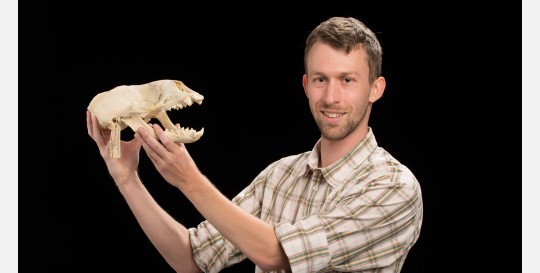Leonard Dewaele
Earth and History of life

- ldewaele@naturalsciences.be
- 0000-0003-1188-2515
Leonard Dewaele is a palaeontologist aiming to unravel how seals, sea lions, fur seals, walruses, and otters adapted to life in water. He works both with extant material, as well as fossil material from all over the world, with a special interest in fossil material from the Pisco Basin in Peru.
Researchgate Google Scholar LinkedIn ORCID
Function
FED-tWIN researcher in vertebrate palaeontology.
Research team: Palaeobiosphere Evolution unit
Research themes: Evolution and the Web of Life
Ecosystems over time
Current Project
Area of Expertise
The FED-tWIN MEATLOAF project tackles its research questions from different angles. This project, i.e., Leonard's research, includes a variety of techniques and expertises, including systematics, taxonomy, phylogeny, geometric morphometrics, comparative anatomy and microanatomy, as well as experimental biology with kinematic modelling, strength and stress analyses, computational fluid dynamics, etc.
External activities
Postdoctoral researcher at the FunMorph Lab (UAntwerpen, Biology Department)
Professional Experience
Prior to his FED-tWIN project, Leonard studied geology at the UGent. His PhD thesis on the fossil seal diversity of Antwerp was co-supervised by Olivier Lambert from the Institute. This was followed by a BAEF postdoctoral project on intraspecific variation in seal bones at George Mason University (Fairfax, Virginia) and the Smithsonian National Museum of Natural History (Washington, D.C.), and an FNRS postdoctoral project on fossil Peruvian seals at the ULiège.